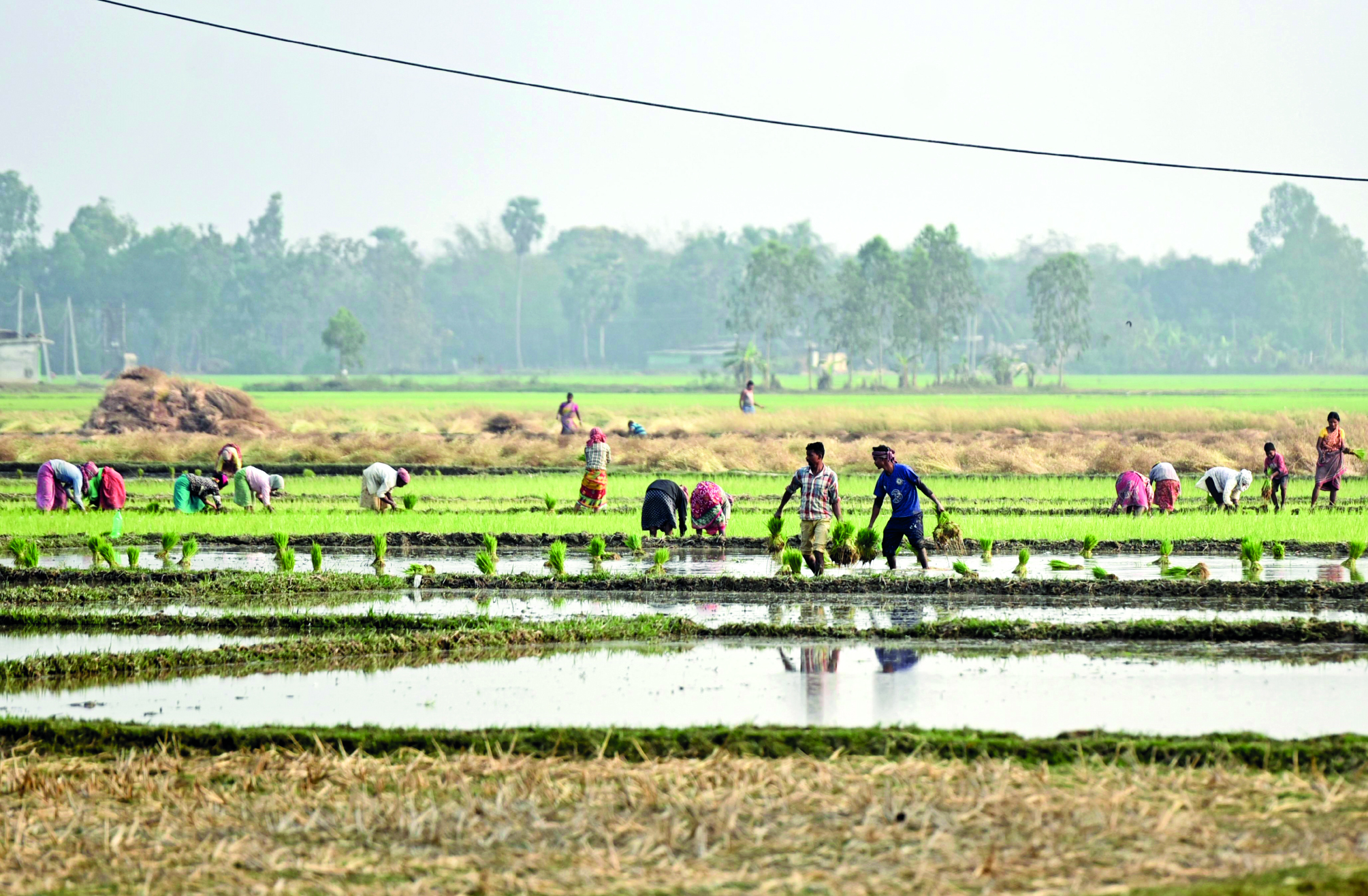South Dinajpur Agri dept to implement block-based natural & traditional farming

BALURGHAT: South Dinajpur district Agriculture department has set its sights on implementing natural and traditional farming practices on a block-wise basis. The initiative aims to enhance agricultural productivity and benefit farmers across the district, according to the district agriculture officer. The programme will be carried out under the 2025-26 Agricultural Development Scheme, for which the department has already submitted an approval request to the state government. Officials expect to receive approval soon.
South Dinajpur district has around 3.1 lakh farmers spread across its eight blocks. As an agriculture-based region, the district primarily cultivates paddy, jute, wheat, mustard and maize. While these remain the major commercial crops, farmers have also started cultivating other crops beyond conventional farming methods. Annually, the district records an Aman paddy cultivation area of 1.8 lakh hectares, Boro paddy on 70,000 hectares, vegetables on 22,000 hectares, mustard on 66,000 hectares, wheat on 40,000 hectares and jute on 50,000 hectares. Additionally, farmers have ventured into the cultivation of lentils, maize, sugarcane and sunflowers.
However, farmers often face challenges due to inefficient farming techniques and inadequate planning, leading to high costs, reduced crop yields and declining soil fertility. To address these issues, the district Agriculture department is now focusing on block-based farming methods to optimise agricultural productivity. According to Pranab Kumar Mukhopadhyay, Deputy Agriculture Officer (Administration) of South Dinajpur: “Under the Agricultural Development Scheme, the district’s farming methods have been classified into two categories: traditional farming and natural farming. Traditional farming will be promoted in the Balurghat, Kumarganj and Tapan blocks, where farmers typically do not follow scientific agricultural practices. They will receive extensive support and training in traditional farming techniques. On the other hand, the blocks of Hili, Gangarampur, Banshihari, Harirampur and Kushmandi will be encouraged to adopt natural farming practices. Additionally, interested farmers from the three traditional farming blocks will also be given opportunities to transition to natural farming.
To facilitate the implementation of this initiative, four district agricultural officers have undergone specialised training. They will train local farmers across the district through the agriculture department, providing necessary equipment and other support to ensure successful implementation.” “This initiative is expected to enhance sustainable farming practices and ensure better productivity and profitability for farmers in the district,” he added.



